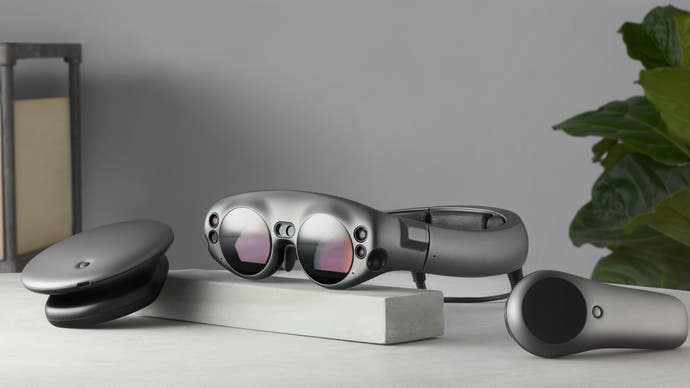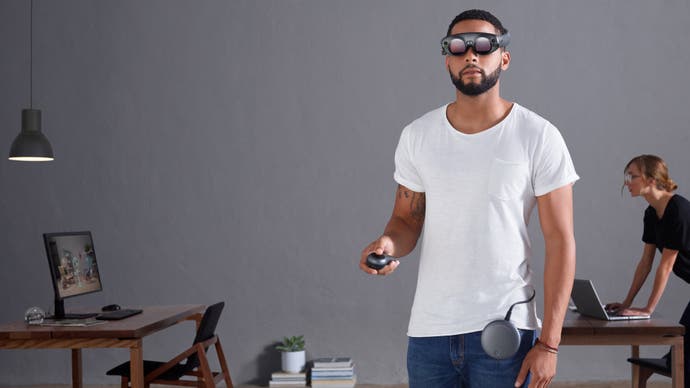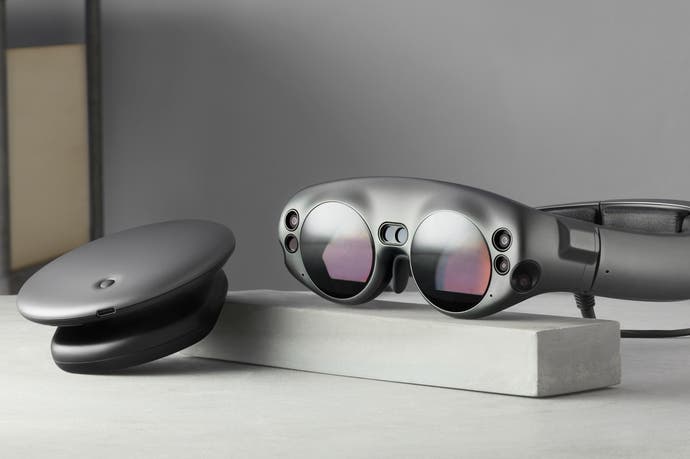Magic Leap finally unveils its long-awaited augmented reality goggles
Creator Edition releasing next year.
Augmented reality company Magic Leap has finally revealed its long-in-development headset, known as Magic Leap One.
Magic Leap One is broadly similar to Microsoft's HoloLens in that both devices are designed to overlay digital images on your view of the real world. Different tech drives each device though, and both have considerably different ideas about fashion. HoloLens is all 80s sci-fi movie visor, while Magic Leap's offering resembles bulbous steampunk goggles.

Magic Leap One is more than just goggles however; it includes the Lightwear headset, a baton-like controller, and a pocket-sized computer, known as the Lightpack. The latter connects to the headset but can be clipped to a belt to keep it out of the way.
The headset features environment mapping, precision tracking and soundfield audio. Rolling Stone, which had hands-on time with the device, says the headset can sense the sound around a user via four built-in microphones, and utilises a combination of external camera and "a real-time computer vision processor" to track the environment it's in. There are also small, high-end speakers in the headset to provide spatial sound.
The controller device, meanwhile, includes an array of buttons and touch inputs, haptic feedback, and six degrees of freedom motion. Additionally, the goggles will come in two sizes, and the forehead pad, nose pieces, and temple pads are customisable for comfort.

Magic Leap touts the fact that it doesn't use two separate images to simulate visual depth, as the likes of 3D cinema and VR have before it. Instead, it employs a "synthesised lightfield" which supposedly "allows our brain to naturally process digital objects the same way we do real-world objects, making it comfortable to use for long periods of time".
The Magic Leap One will release in 2018, initially in the guise of a Creator Edition. This version is designed with developers in mind, and will launch with a Creator Portal, featuring open access to the Magic Leap SDK along with tools, documentation, and learning resources. Presumably, a more refined consumer version will follow at a later date.
Magic Leap has raised over $1.9 billion in investor funding since its formation in 2011, and today's reveal marks the first time that the company has shown off actual working hardware, rather than concept footage. For more information, you can visit the Magic Leap website.

